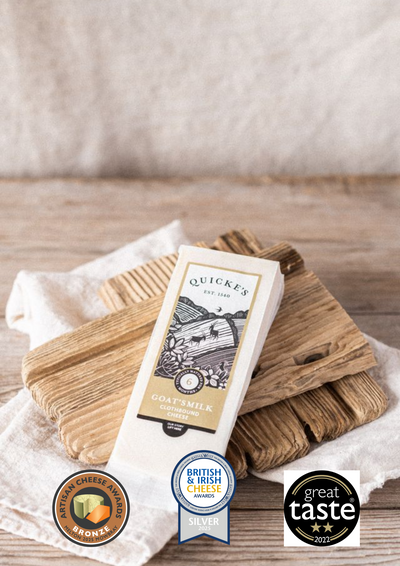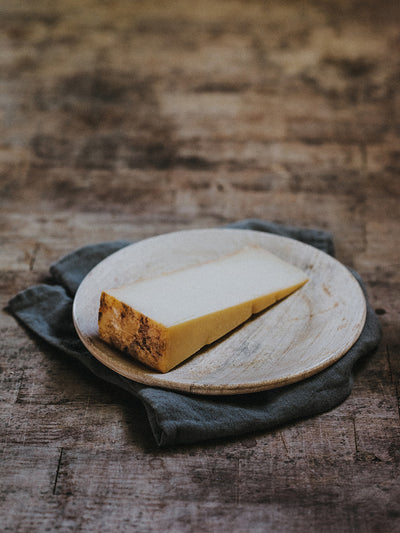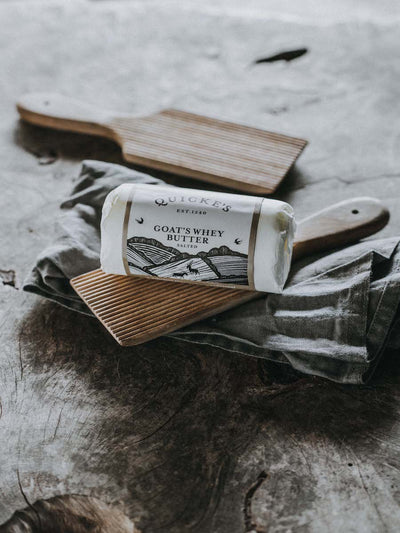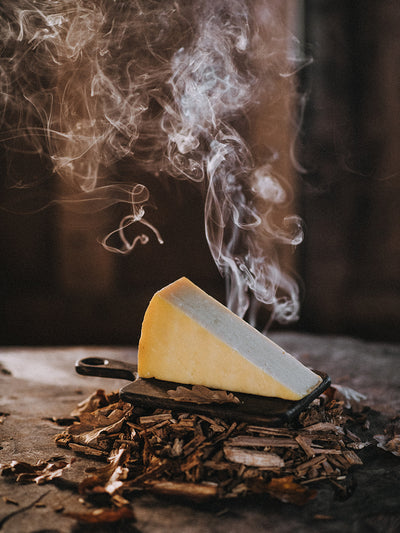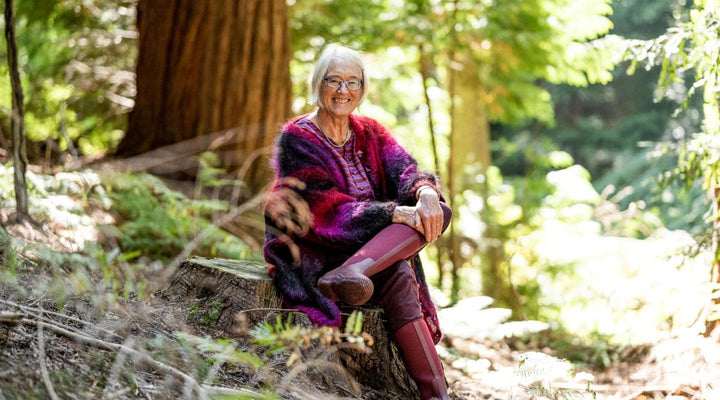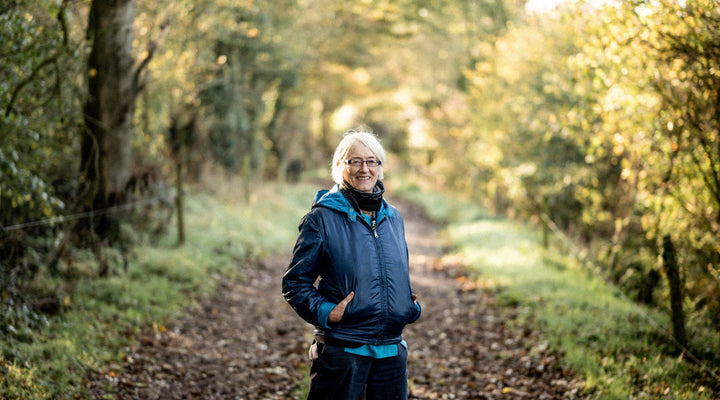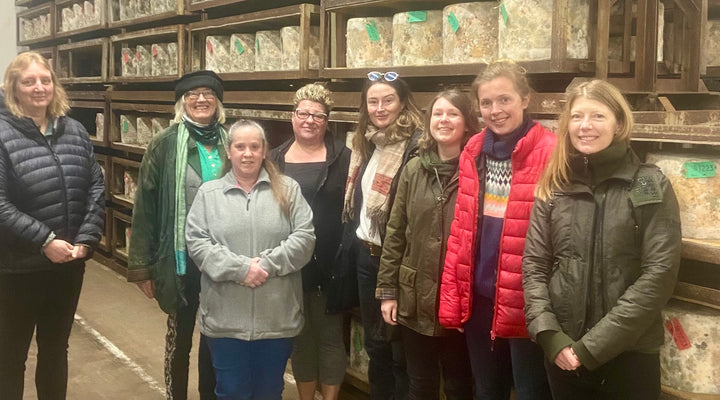One of the key moments in cheesemaking is the acidification of milk, which causes it to split into solid curds and liquid whey. If milk is left to its own devices, it acidifies naturally, turning into cheese in an uncontrolled way. But we want to control that transformation, so we use starter cultures, made up of carefully selected good bacteria.
What is a 'starter'?
A starter is a complex mix of microorganisms, with lots of bugs that operate in different ways, and each makes a stamp on the cheese. Starter cultures consist of lactic acid bacteria, which ferment the sugar in the milk — they convert lactose to lactic acid and make the milk more acidic. This allows the milk to coagulate faster and release more whey, and it contributes to flavour and texture too.
Quicke's Heritage Starters
Our starters were collected from the best cheese dairies of the sixties and seventies, by somebody called John Lewis — nothing to do with the British retailer of the same name. Most industrial dairies use cultures that have a maximum of three strains of bugs and are much simpler in profile — for example, very sweet or very sharp — so the cheese they produce is the same every day. We use several cultures that derive from wild cultures collected from the best dairies in the 1960s and ‘70s, and because of that, there’s more complexity.
A winemaker has a vintage once a year; we have a vintage every day.
A fragile existence
Our starters were actually almost discarded, at one point. They’d ended up in the hands of a French yeast-making company, who couldn’t make any money out of them, so they went to get rid of them. Fortunately, an amazing man, a microbiologist called Ray, stole them and brought them back to Somerset. To think — all those years of development. Those exquisite, complex flavours. You wouldn’t be able to replicate that. It’d be like destroying history or music or art — it’s no surprise they’re called cultures. They’re integral to the cheese. He rescued them.

